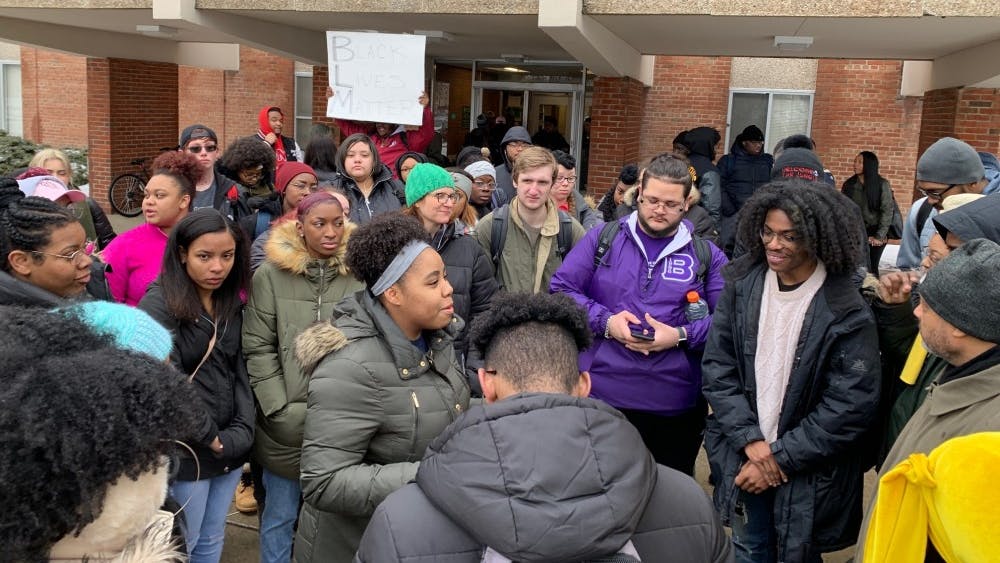The COVID-19 pandemic has impacted both the private and the public sectors of the state. Due to budget constraints resulting from the pandemic, public funding to state universities in Michigan is being cut by $200 million, according to the Detroit Free Press. Among the many impacted universities and institutions is Eastern Michigan University.
‘“The State has an enormous impact . . . any cut in state support will have a dramatic effect on EMU's budget,” Todd Ohmer, Executive Director of Financial Planning and Budgets for EMU told the Echo. The interview with Ohmer occurred before the announcement of budget cuts by state officials. According to Ohmer, the university received over $77 million in state appropriations during the fiscal year 2019.
Following the cuts to EMU’s budget, EMU President James Smith wrote the budget difference will be made up for with one-time federal CARES Act funds received by the state for the fiscal year 2020.
Michigan is not alone in state funding being cut to public universities this year. In early May, Ohio Governor, Mike DeWine, announced a cut of nearly $110 million to higher education in the state.
Indiana universities are looking at a 7% reduction in state funding, amounting to almost $103 million.
As a result of decreased funding EMU announced a 7% salary reduction for “members of the executive board” announced in an email to students and employees on May 22. The executive board includes head coaches in football and basketball as well as other university administrators.
EMU isn’t alone in cutting the executive boards salaries. The University of Iowa’s president has taken a 50% salary reduction, with comparable schools such as Western Michigan University, Bowling Green State University, and Saginaw Valley State University being others who have seen salary reductions to the executive board.
In the email Smith detailed new budget actions, which included a reduced work schedule for non-bargained employees in all areas of the university. Participation in Michigan's Work Share program was listed as means to help offset the financial burden of reduced hours for staff.
“The University’s intent in this process is to minimize the financial impact on our employees,“ Smith stated in the email. "Depending on individual base salaries, participation in Work Share could more than compensate employees for the decrease in their base salary.”
The Michigan Work Share program allows employees to work reduced hours while collecting partial unemployment benefits.
Ohmer reiterated the university response to the budget crisis, mentioning how non-bargained staff did not receive a salary increase for the upcoming year. Non-instructional staff moved to either 60 percent or 80 percent Work Share through July and most capital projects are suspended or delayed. Additionally, all work-related travel has been suspended.
These are moves that have been seen in many universities nationwide, with some schools going as far as cutting sports teams from their athletic programs. Bowling Green State University announced on May 15, the immediate cut of baseball, only to later reinstate it after fundraising was done to save the program. At Central Michigan University, the athletic department eliminated the men’s track and field program in order to account for budget constraints. In total, 14 schools in Ohio and Michigan have announced cuts to their athletic programs in hopes of saving money. See the comprehensive list here.
Click this link to see an interactive map of cuts and other budget implications at universities across the midwest.
With universities limiting their return to in-campus classes and housing this fall, schools are looking at even more funds disappearing from their budgets. In 2017, MLive reported that EMU received $671,000 in ticket sales to football games. According to USA Today’s 2018-2019 finance report, EMU brought in a revenue of approximately $30 million from athletics, with other Mid-American Conference schools bringing in up to $45 million from their athletic programs.
Additionally, EMU had over 3,800 students living on campus in 2016, which would account for up to $38 million lost in room and board for the school if of on-campus move in is suspended indefinitely. Predominantly residential schools of comparison to EMU, such as Central Michigan University (where US News & World Report reports almost 6,000 students live on campus), would lose around $64 million. Ohio University has over 7,000 students who live on campus and looks at a loss of over $83 million if they cannot have students on campus in the fall.
EMU has delayed move-in for students who plan to live on campus by three weeks. Move-in has been moved from Aug. 27 to Sept.17. Most remaining in-person classes will be switched to an online format by Sept. 20. EMU has suspended all athletic activities until spring 2021, in conjunction with the MAC’s decision to suspend all sports.










